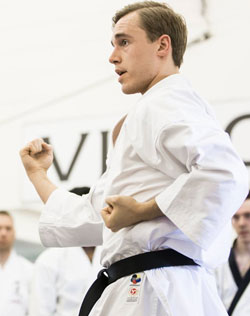Brazilian Jiu-Jitsu, until recently, was considered an academic activity without the practicality of a real-world fighting sport. The UFC has made this a reality, bringing the UFC and other combat sport into the limelight. They are now considered a viable option for self defense and self-improvement. Martial arts training has been proven to improve memory, reduce stress, improve character, and increase self-confidence.
Character development of a good martial arts coach
Good coaches build character in their students. They encourage their students to be better and help others. Good coaches can be role models for students and reflect Bushido’s philosophy. Good coaches encourage students to develop the right attitude for martial arts training. They are dedicated to helping others, but they also practice martial arts and support a diversity of people. These are the characteristics of a good coach in martial arts.
– The best martial artists adapt to different situations and styles. They are skilled in adjusting techniques and strategies according to the situation. They are able to analyze the styles of their opponents and create a game plan to exploit their weaknesses. They also have a diverse set of skills and techniques to train their students in martial arts. It’s important to remember that martial arts is not only about Japanese and Chinese styles. It is an art that is practiced by people all over.
You can choose between slow or fast martial arts training
There are two ways to train a fighter: slow and fast martial arts training. One involves sparring at slow speeds which is beneficial for speed and stamina development. High-level fighters rarely spar at slow speeds, so the idea that slow sparring is no longer effective is ludicrous. Slow sparring requires that a fighter move slowly in order to relax his or her body.
Despite these differences, slow training in martial arts may have an edge in certain fighting scenarios and sequences. A slow martial artist might have a clear advantage in a head–to-head right counter. The practitioner should then repeat the scoring movement to allow the opponent time to respond. This technique can also be useful for slow training.
Reduces stress
According to the American Institute of Stress 77 percent of people suffer from psychological and physical symptoms of chronic stress. You may experience mild to severe headaches, chronic chest pain, or mild depression. Martial arts training can help you achieve all four pillars. These effects can differ for different people. Here are some ways that martial arts coaching can reduce stress for each person:
It reduces physical stress and helps the mind and body to work together. Martial arts coaching can help calm and focus the mind, which is especially useful for children who are inattentive. With so many sensory distractions in our daily lives, it can be difficult to focus on just one thing. Martial arts training increases brain oxygenation and brain neurotransmitters production. This improves a person’s ability to concentrate and learn.


